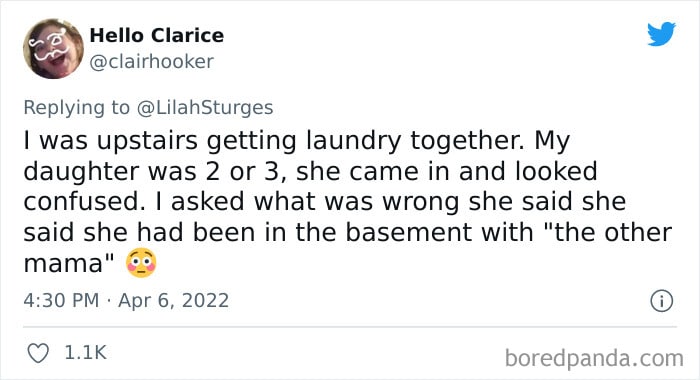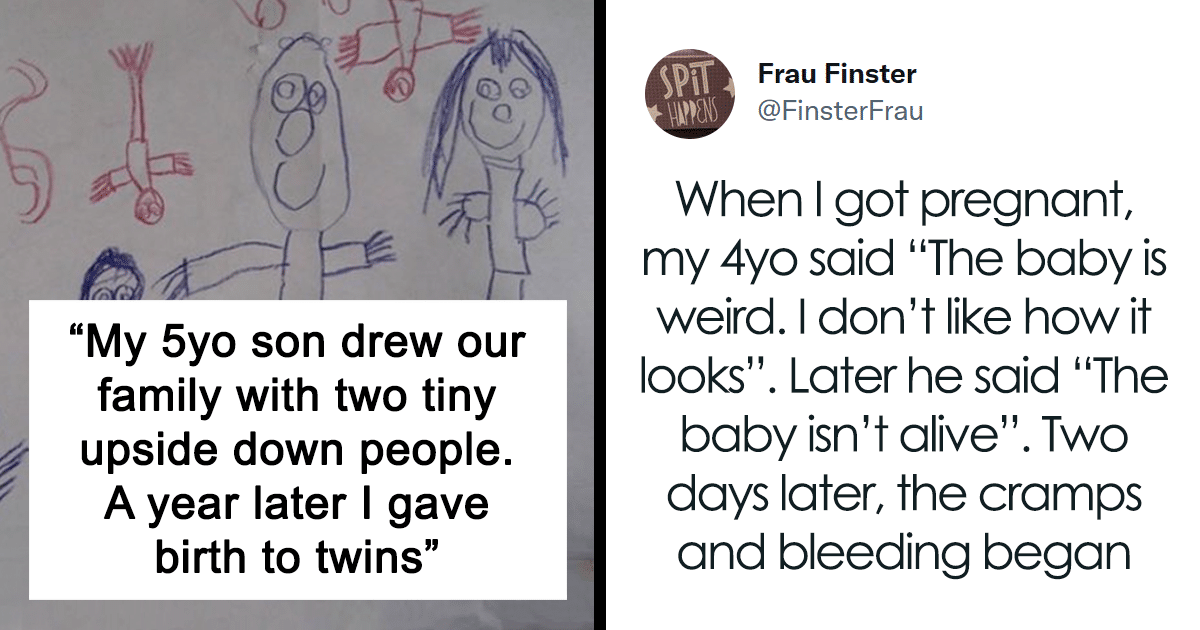A Texas-based writer Lilah Sturges asked people to share asks scariest things a child has ever said to their parents.
From the bizarre to the straight-up chilling, we have collected some of the best tweets from the thread. Continue scrolling…
1.

2.

3.

Lilah Sturges says “when my daughter was around 4-5, she calmly insisted that she had once been married to a man named Brad Huffington,” she wrote. “When we asked what had happened to him, she replied with a note of sadness, ‘He was lost at sea.'”
Later on, she posted an update: “I mentioned this tweet to my daughter (who is now 21) and she reminded me that Brad lost a leg while serving in the Navy prior to his demise and that they had five kids together.”
4.

5.

6.
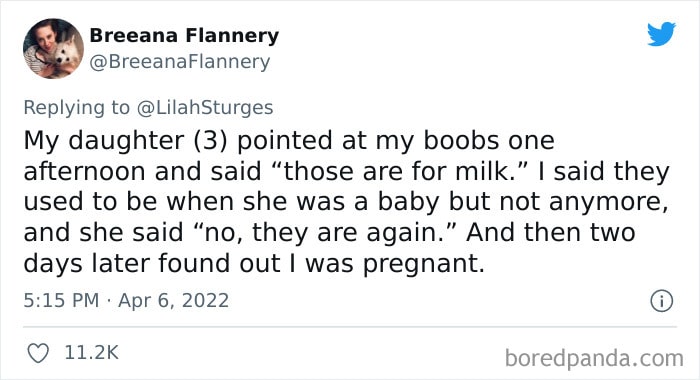
7.
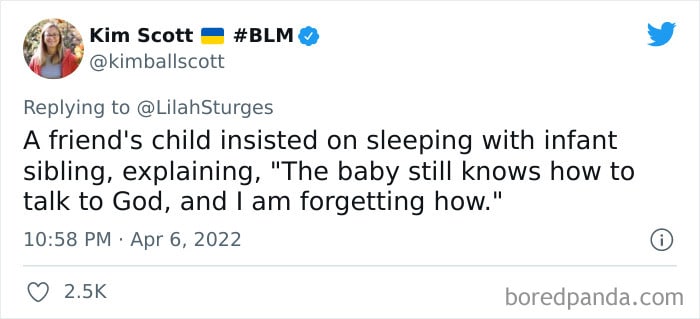
“But we all know kids are brutally honest and can sometimes be like sponges soaking up all of the information around them. So they can goofily sneak up on you and act all adorable one day but stare into the void speaking about obscure things that just don’t make any sense the next. It leaves moms and dads with a lot of questions in their minds and proves that parenting is a complicated experience with many highs and lows.”
8.

9.

10.
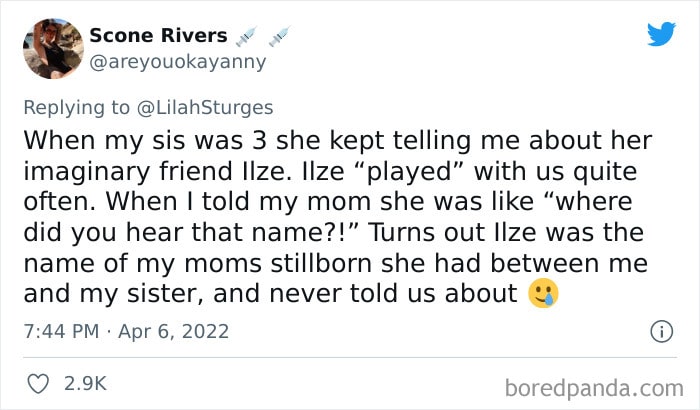
“It really depends on your child and what it is that they are doing that has alerted you to their different behavior. You know your child best and if you are concerned in any way and the behavior has not changed for the better then it is always best to intervene,” she advised.
“Depending on the age of the child and the behavior, you might wish to start with open-ended questions ‘What is going on for you?’ ‘How can I help?’ as a starting point,” Lewis said and added that more serious behavior changes may need a different approach.
11.
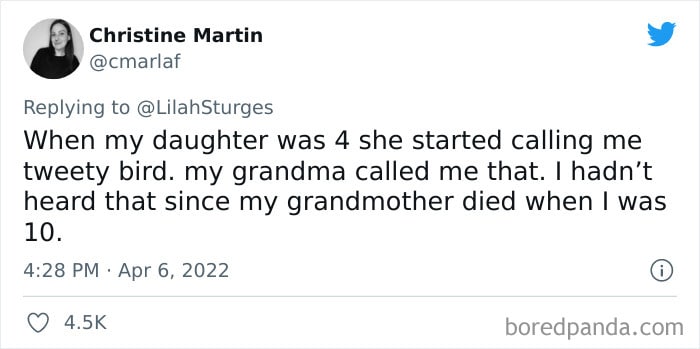
12.
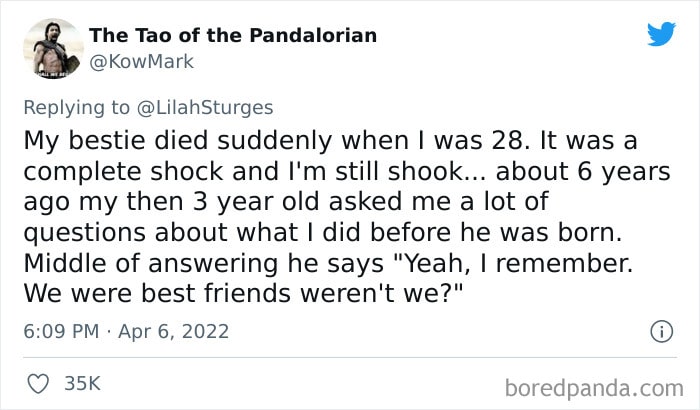
13.
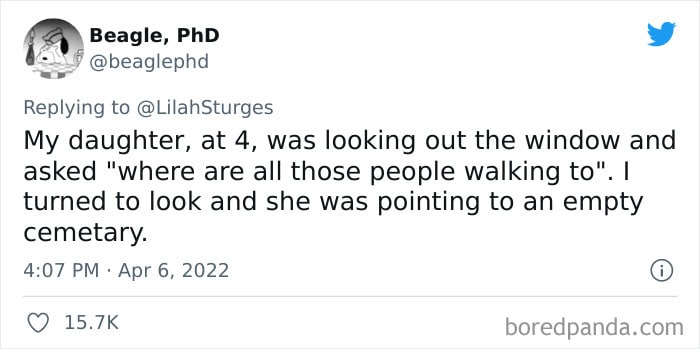
“There are admittedly lots of reports of kids seeing ghosts,” she told The Washington Post. However, the professor added there are many holes in stories like these, namely, the brain. “Our minds naturally make connections between events, whether they’re connected or not. The brain pays attention to evidence that fits our theory and ignores the evidence that doesn’t fit,” she explained.
14.

15.
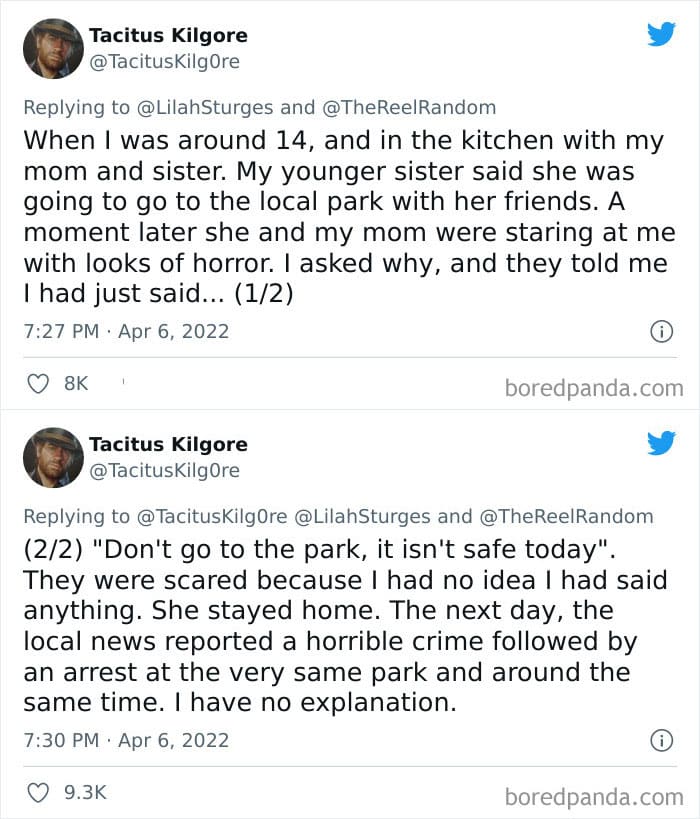
16.
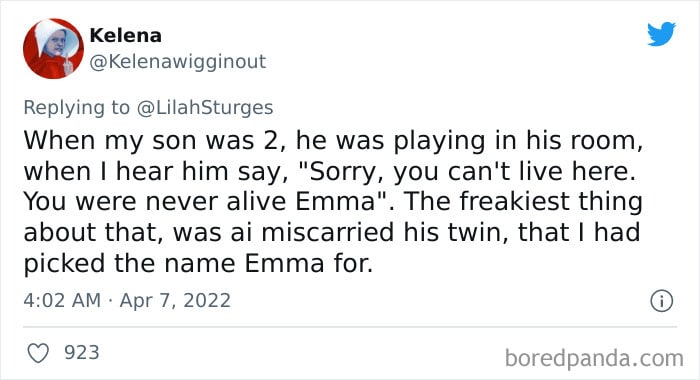
17.
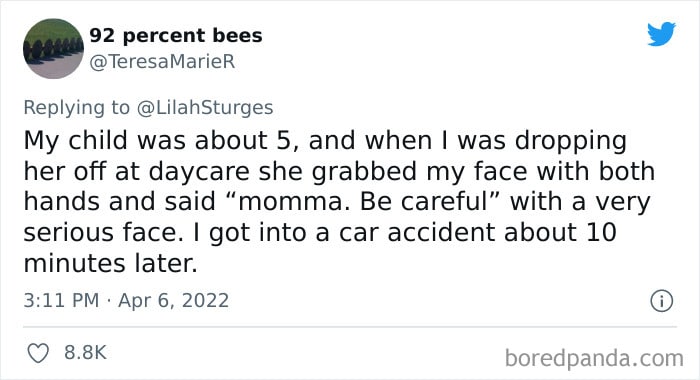
“You want to work with the emotion, not the ghost,” Woolley said and suggested you “work within the fantasy”.
For example “Engage with the kid as to what it looks like and what it does. Ask her if she’s scared of the ghost or if she likes it and if she’s seen it before.” Try to speak with your child and understand where all of this is coming from. “Then it’s up to you as a parent to decide if you want to encourage or discourage this belief.”
18.
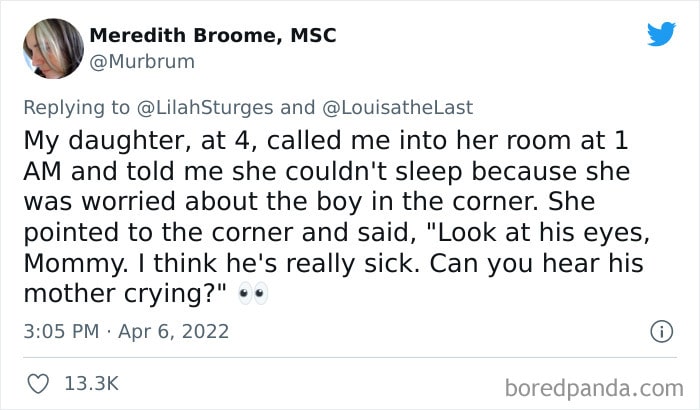
19.
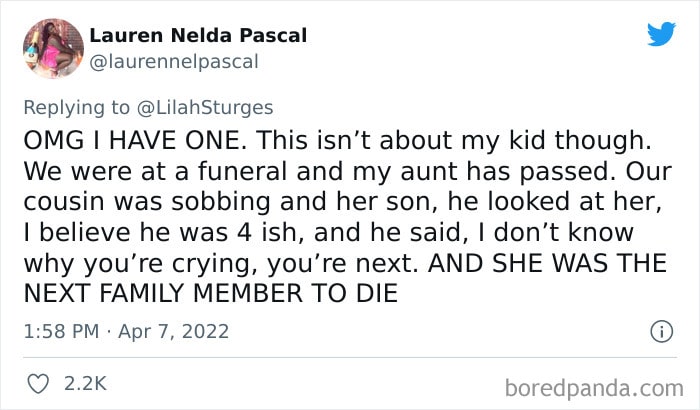
20.
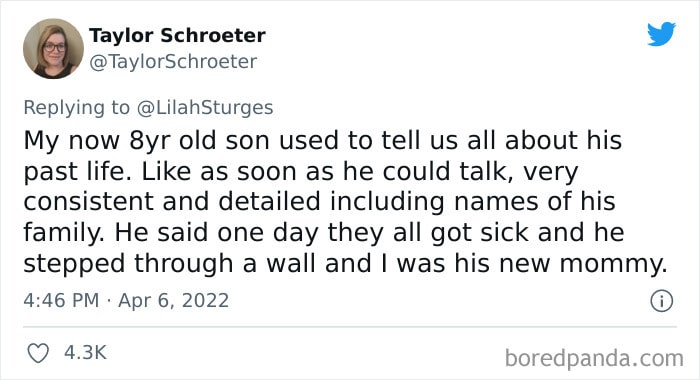
21.
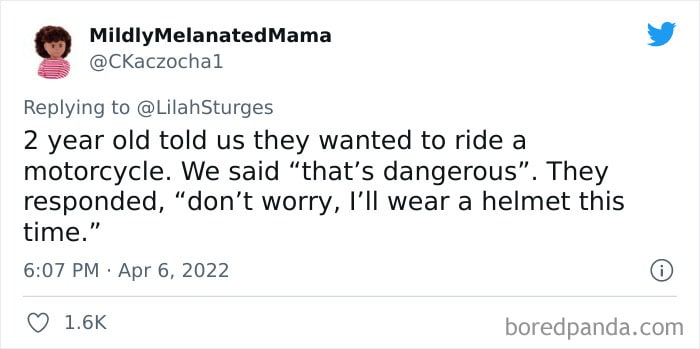
22.
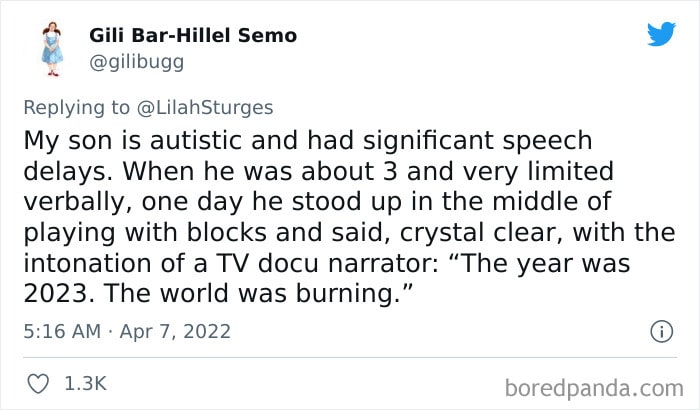
23.
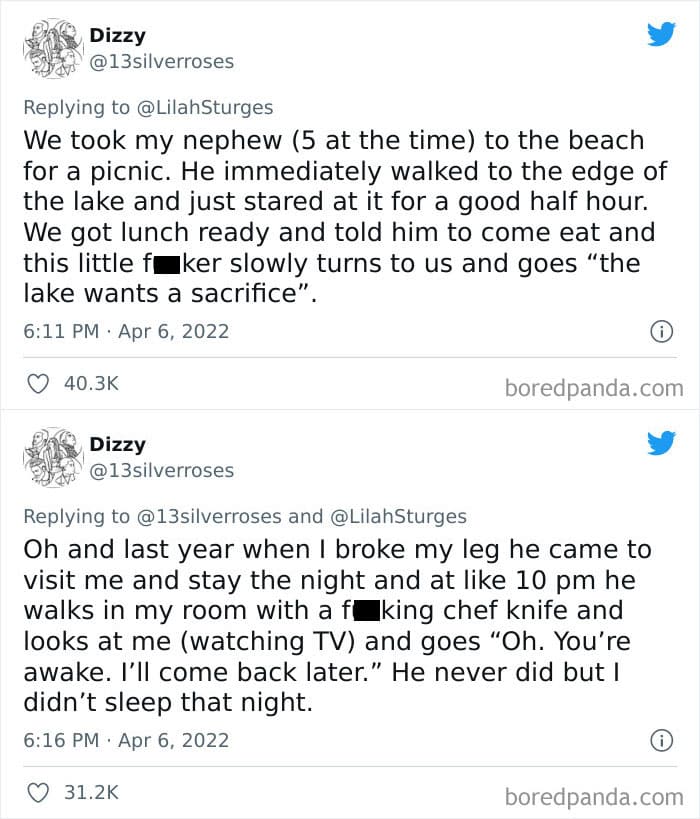
24.
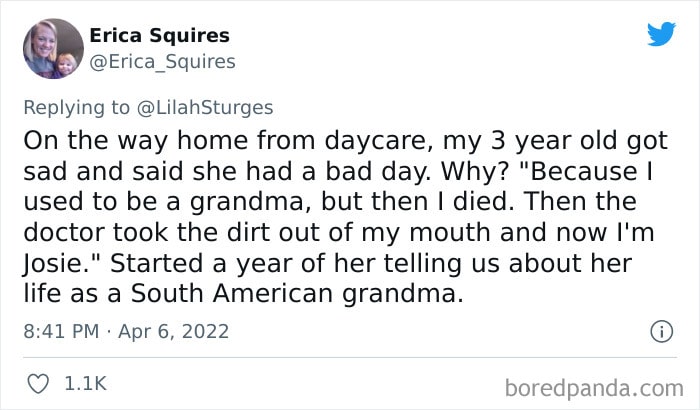
25.
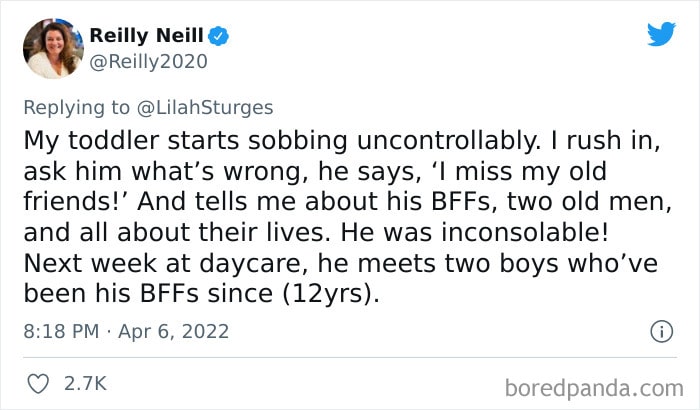
26.
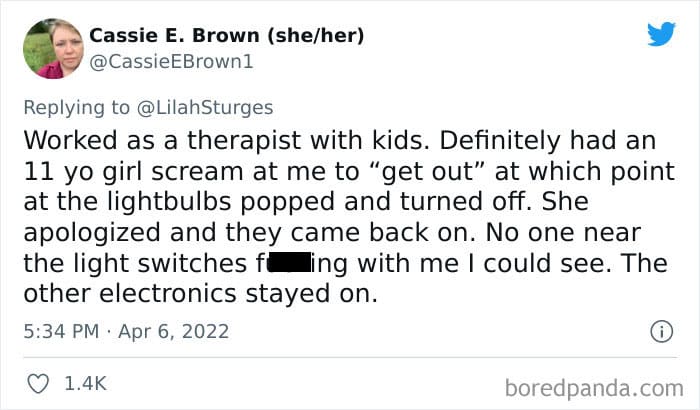
27.
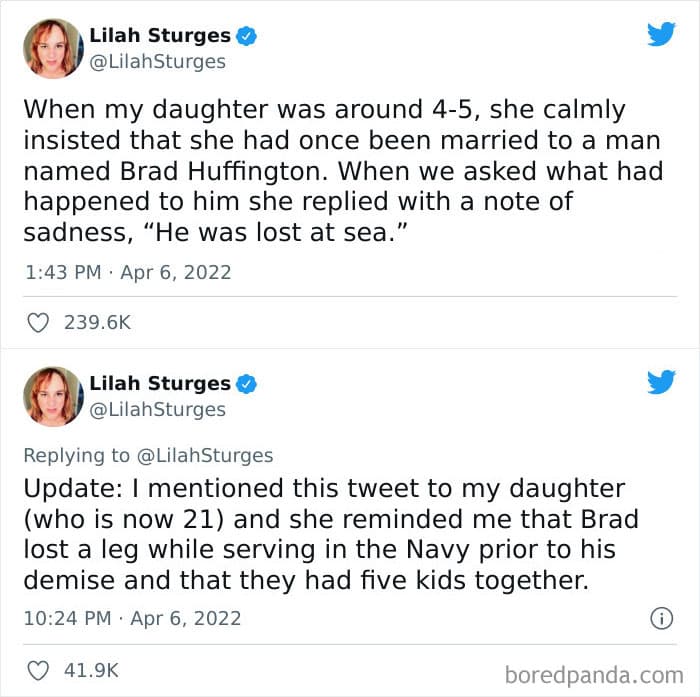
28.
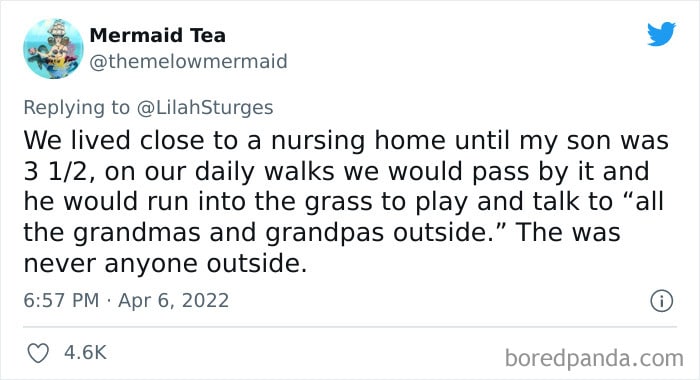
29
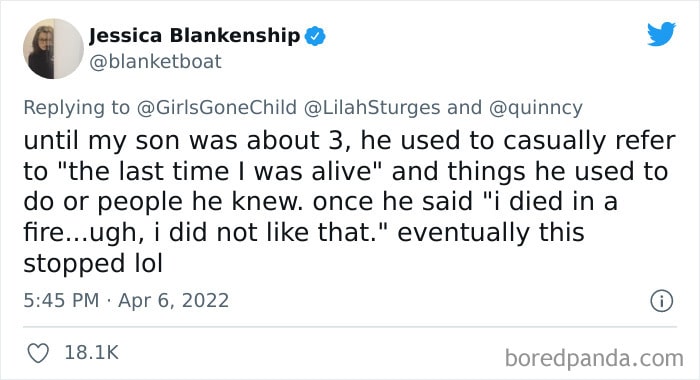
30.
